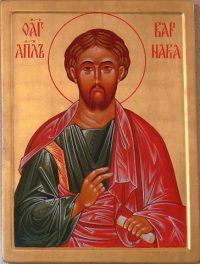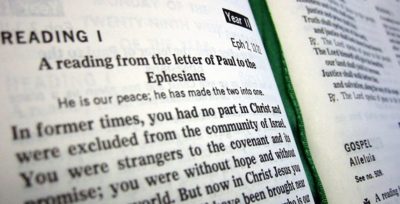The Church as Apostolic & Statement of Anglicans

What exactly is an Apostle?’ and ‘How is the Church Apostolic?’ and ‘Why is the Church called Apostolic in the Creed?’
The Second Office of Instruction in the Book of Common Prayer deftly tells us the Church is ‘Apostolic; because it continues stedfastly in the Apostles’ teaching and fellowship’ (page 291, Acts of the Apostles 2.42). The Church, in her historical character and in her spiritual constitution, was founded upon the Twelve and their successors, built upon the foundation of the Apostles and Prophets, Jesus Christ Himself being the chief cornerstone (Ephesians 2.20). Holy Scripture declares that the Church of the living God, the House of God, with her Apostolic foundation, is the pillar and ground of the truth (I Timothy 3.15). The Church is called Apostolic because the Holy Apostles set the historical beginning of the Church. They spread the Gospel to the ends of the earth; almost all of them sealed their proclamation of the Saviour with the death of the martyrs. The seeds of the Faith were sown throughout the world by their word, and watered with their blood. The blood of the martyrs is the seed of the Church (Tertullian, Apologeticus, Chapter 50). The appellation Apostolic also indicates that the Church of Christ was not established upon a single Apostle, as the papal error maintains, but upon the Apostolic College of the Twelve – a body, a collective, a unity in diversity, the Twelve Patriarchs of the Twelve Tribes of the New Israel, the universal Church.
The Apostles, apostoloi, literally ‘the sent ones,’ ‘God-sends,’ fired the flame of faith in Jesus Christ by the power of their personal belief and example. The Apostles, the first bishops of the Church and eye-witnesses of the Resurrection, consecrated and ordained by Our Lord, preserved for and transmitted to the Church the teaching of the Christian Faith in that very form in which they received it from their Lord and Master (II Timothy 2.13). They handed on, ‘traditioned’, to the faithful the teaching and instruction of Our Lord by word of mouth and in the Holy Scriptures, so that the deposit of faith, the Revelation of Christ, might be confessed, preserved, and most importantly, lived out (II Thessalonians 2.15). We call the work and ministry of the Apostles, in this respect, the Holy, Great and Apostolic Tradition, for traditionmeans ‘to deliver, to hand-down, to pass-on.’ According to the direction and commandments of the Lord, the Apostles established the structure of the Church’s sacred liturgy; they set the pattern for the celebration of Holy Baptism, Holy Orders and the Holy Mysteries of the Body and Blood of Christ, the Eucharist. The Apostles conveyed in and to the Church the grace of the episcopal succession, the episcopate, and, through that Order of Bishops, the entire threefold ministry of the ordained called to be stewards of the mysteries of God and organs of the Church’s body (I Corinthians 4.1, Collects, BCP page 572, Preface to the Ordinal, BCP page 529). Concerned that all things might be done decently and in order, the Apostles provided what was necessary for the internal order of the primitive Church (I Corinthians 14).
The Holy Apostles are not dead historical figures of a long-ago past; they were not solely part of the Church in a previous age. They still belong to the Church and remain in the Church now, in the Communion of Saints. Once in the Church Militant, now they belong to the Church Triumphant; they are in communion with earthly believers today. They continue forever the spiritual nucleus of the Church, as once they were the historical centre of it. The Church is eternal. The Church in time and space is urged to remain in communion with her shepherds and teachers, the Apostles, to persevere in communion with the doctrine, fellowship, liturgical forms and prayers of the Apostles, and with their saintly persons in heavenly glory. The wall of the city has twelve foundations, and in them the names of the twelve Apostles of the Lamb (Revelation 21.14).
The Church on earth is one with the Church in heaven, for the Church is the one Body of Christ. The Church’s unity is both earthly and heavenly; the Church is holy with a sanctity that comes from the heavenly Spirit of God; and the Church is Catholic and Apostolic because she possesses an unbroken connection, an inseverable link, with the Apostles and Saints in heaven. We are the Church insofar as we remain true to the Apostles and faithful to what they have taught and done. The Four Marks of the Church identified in the Creed are real, and, although they may be as yet imperfect in our expression of the Church on earth, they point us to their eschatological fulness and fulfilment in the Life of the World to Come, where, in Christ, the Apostles reign victoriously over sin and death in glory of the Blessed Trinity. The Apostolicity of the Church is first and foremost a gift that God has generously bestowed upon us on earth, that we should offer our everlasting gratitude for a wonderful tie that binds us to all orthodox Christians, in heaven and earth. May we, in the words of the Prayer Book, ‘with one heart desire the prosperity of God’s holy Apostolic Church and with one mouth profess the faith once delivered to the Saints.’
God bless you! +Chad at June 09, 2012 1 comment:
Email ThisBlogThis!Share to TwitterShare to FacebookShare to Pinterest
Wednesday, July 22, 2015
STATEMENT OF THE INTERNATIONAL CATHOLIC CONGRESS OF ANGLICANS
Dear Brothers and Sisters of the Anglican Family, the Global South, the Global Anglican Future Conference (GAFCON) movement, and all the faithful seeking a conciliar Church:
The International Catholic Congress of Anglicans, held July 13-17, 2015, at St. Andrew’s parish of the Diocese of Fort Worth, Texas, of the Anglican Church in North America, gathered to reaffirm a catholic and conciliar doctrine of the Church. The Great Commission of our Lord directs the Church to make faithful disciples, calling them out of the nations of the world to be holy to the Lord. This statement seeks to sketch out the way forward in fulfilling our Lord’s call to make faithful disciples in the context of a properly conciliar church.
SALVATION, CRISIS, AND THE CATHOLIC CHURCH
The Greek word for church, ekklesia, identifies these disciples corporately as “the called One.” The Gospel of our Lord therefore identifies this one holy people, the Church, as integral to salvation for all, so that the Church Fathers and the Reformers of the 16th century, echo the great African Bishop, Saint Cyprian, who said: “outside the Catholic Church there is no salvation,” and, “no one can have God as Father who does not have the Church as mother.” God calls out a people, rescuing them from sin and death, assuring them that they will participate in Christ’s reign, the Kingdom of God. Indeed, it is impossible to know the Lord, who calls out of darkness and into His marvelous light, without being joined to His one, holy, catholic, and apostolic Church. Through preaching, the sacraments, catechesis, and spiritual formation, worshiping in Spirit and in truth, the Church is able to make disciples by being faithful to the Apostles’ teaching, the breaking of bread, the prayers, and the fellowship.
As the body has no life apart from the head, so the Church has no life apart from Christ, whose Spirit is the Lord and Giver of life. However, churches and the culture in the West are in crisis. Secularism pervades both. In many places, Islam seeks to replace the Church and radical Islam persecutes her. Unprincipled egalitarianism eviscerates language, liturgy, life, faith, and orders of a divided Christendom. A culture of death is evident in abortion and euthanasia, and a tragic and unnecessary sexual confusion shapes the paradigms of young and old. What does the Church say? Where does she stand, and with whom? A deficient and aberrant ecclesiology is not simply a result of the present crisis in Church and culture, but is rather a primary cause for the current crisis, and deserves the attention of all catholic Christians.


